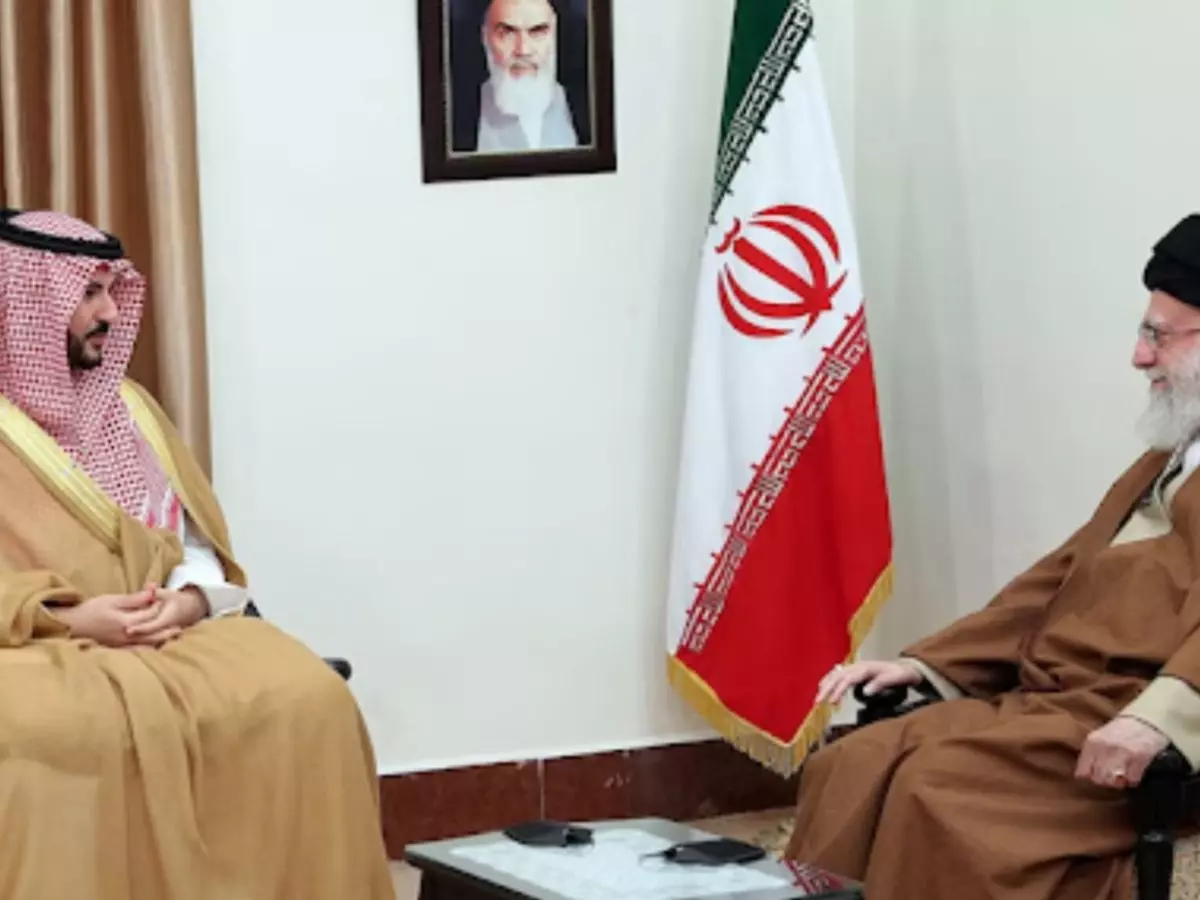Saudi Minister warns Iran: Accept Donald Trump¡¯s nuclear deal now or risk war with Israel as U.S. patience runs out
Saudi Arabia¡¯s Defence Minister visited Tehran in April with a clear message from King Salman: accept President Trump¡¯s nuclear deal offer or risk regional conflict. The visit, first in over 20 years, comes amid weakened Iranian influence and rising tensions.

Saudi Arabia¡¯s Defence Minister Prince Khalid bin Salman visited Tehran last month with a direct message from King Salman bin Abdulaziz. The message was aimed at urging Iran to treat President Donald Trump¡¯s nuclear deal proposal seriously to avoid escalating tensions with Israel. The visit on April 17 was the first by a senior Saudi royal in more than two decades and involved high-level Iranian officials including President Masoud Pezeshkian, Armed Forces Chief of Staff Mohammad Bagheri, and Foreign Minister Abbas Araqchi.
Message from Riyadh: Avoid escalation, choose diplomacy
Prince Khalid conveyed that President Trump¡¯s administration would not entertain lengthy negotiations. According to Gulf and Iranian sources, the Saudi minister said the current opportunity could close quickly. Trump had recently announced that direct talks were underway with Tehran, alongside Israeli Prime Minister Benjamin Netanyahu, who had instead hoped for Washington¡¯s backing in military strikes. Prince Khalid stressed that pursuing a deal would be preferable to risking a military confrontation with Israel, especially given the region¡¯s instability due to recent conflicts in Gaza and Lebanon.
 Saudi Defence Minister | Credit: X
Saudi Defence Minister | Credit: X
Iran¡¯s reaction: Deal preferred, but trust issues remain
Iranian officials told Prince Khalid they were open to reaching an agreement, mainly to ease economic strain from sanctions. However, they voiced concern over what they described as the Trump administration¡¯s unpredictable demands. While Iran may be willing to pause uranium enrichment in exchange for access to frozen funds and civilian nuclear rights, the leadership is not prepared to dismantle its enrichment program entirely. Iranian President Pezeshkian made clear Iran¡¯s interest in diplomacy but also pointed to the lack of consistency in U.S. positions.
Saudi¡¯s wider concern: Preventing regional instability
Prince Khalid¡¯s trip also touched on Iran¡¯s broader regional role. He urged Tehran to reconsider its policies across the Middle East and avoid actions that could provoke a stronger U.S. response. He referenced past incidents, including the 2019 drone strikes on Saudi oil facilities¡ªblamed on Iran and its Houthi allies. Prince Khalid also assured Iran that Saudi Arabia would not allow its land or airspace to be used by the U.S. or Israel for attacks on Iranian targets. The message was part of a broader Saudi push to protect its economic ambitions from being derailed by further conflict.
Changing regional dynamics
The visit highlighted the shifting balance of power in the Middle East. Iranian influence has taken a hit due to military losses suffered by allies such as Hamas and Hezbollah, and the fall of Syrian ally Bashar al-Assad. Meanwhile, Saudi Arabia¡¯s diplomatic profile is rising, including its role in mediating talks between Trump and Syria¡¯s new leadership. Despite a 2023 d¨¦tente, Saudi officials remain cautious about Iran¡¯s reliability. Prince Khalid¡¯s message reflected Saudi Arabia¡¯s ongoing efforts to keep the region stable while pursuing its long-term economic goals.
For more news and current affairs from around the world, please visit Indiatimes News.
